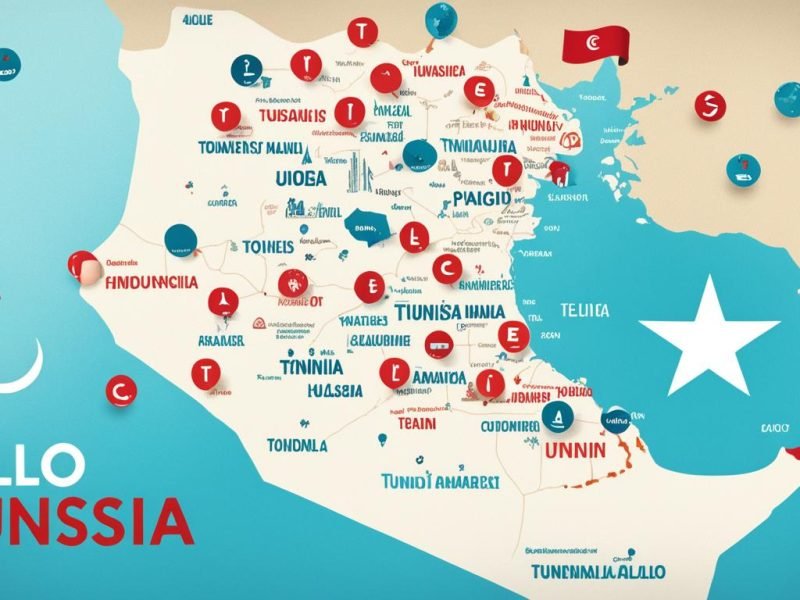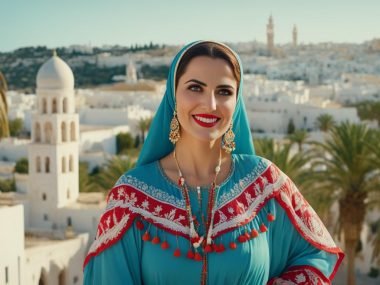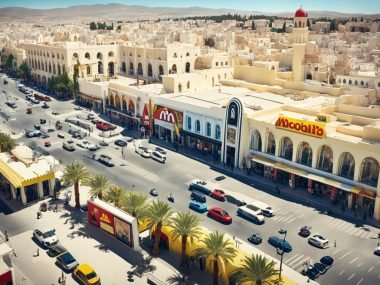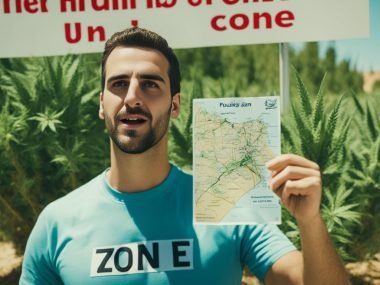Did you know less than 1% of Tunisians speak Berber? Tunisia is in North Africa and has a history that goes back a long way. It has about 11 million people. This place has different groups like Arabs, Berbers, and Turks. They all add to the country’s language mix. The main language is Literary Arabic. It shows Tunisia’s deep history. But people also speak Tunisian Arabic every day. This language has bits of Berber, Punic, French, Italian, and Turkish.
French is still big because of history. But now, more young people and schools use English. Knowing about Tunisia’s languages helps visitors and locals talk better. It lets everyone enjoy the country’s rich language scene.
Key Takeaways
- Tunisia is home to a rich blend of ethnic backgrounds, influencing its linguistic diversity.
- Literary Arabic is the official language, reflecting Tunisia’s rich cultural heritage.
- Tunisian Arabic, influenced by multiple languages, is the widely spoken national language.
- Berber is spoken by less than 1% of the population, mainly in mountainous regions.
- French remains a significant foreign language due to historical ties, while English is increasingly popular.
Overview of Languages in Tunisia
Tunisia is home to many languages, coming from its rich history and diverse people. There are Arabs, Berbers, and Turks among others. Each group has given Tunisia its unique languages. The country is known for its skill in many languages. This shows in their everyday life.
Main Ethnic Groups and Languages
The biggest group in Tunisia is the Arabs, with Berbers and Turks following. Each group adds new words and sounds to Tunisia’s language mix. The most spoken language is Arabic, used by most people there. But, in some hills, you can hear Berber.
This mix of languages makes Tunisia special. From big cities to small towns, many dialects are spoken.
Historical Influences on Language
Over time, many people have come to Tunisia from places near the sea and Europe. They brought languages like French, Italian, and Turkish. These joined with the local languages. This mix made Tunisia’s language scene very rich. This history helps Tunisia handle many languages well today.
Thanks to this, Tunisia’s culture and language keep growing. It’s a place where many dialects live side by side.
Official Language of Tunisia
Literary Arabic is very important in Tunisia. It is used in places like schools and government. This helps everyone understand each other, even with many local dialects.
Literary Arabic and its Use
In schools, kids learn in Literary Arabic. It is also used for government news and official papers. Even though people chat in Tunisian Arabic, formal talks are in Literary Arabic. This follows Arab traditions.
Impact of Pluricentricity
Arabic has many standard forms in Tunisia. This shows the country’s variety and shared culture. It makes Communication effective. It keeps the country together while connecting it to other Arabic speakers.
Below is a look at how Literary Arabic is used:
| Sector | Use of Literary Arabic | Impact |
|---|---|---|
| Education | Medium of instruction, textbooks, academic publications | Unifies learning, makes talking about studies the same for all |
| Government | Official communications, legal documents | Makes rules clear, keeps things running smoothly |
| Media | News broadcasts, formal publications | Keeps news quality high, informs many people |
National Language: Tunisian Arabic
Tunisian Arabic is known as Tunisian Darija. It is Tunisia’s national language. It has many dialects, influenced by Berber, Punic, Arabic, and other Mediterranean languages. Though not formally structured, everyone in Tunisia understands it. It’s a big part of everyday life.
Dialects within Tunisian Arabic
Tunisian dialects are rich and varied. They show Tunisia’s many historical and cultural influences. These dialects are more than just language versions. They celebrate Tunisia’s diverse culture. Urban dialects alter slightly, but southern and coastal ones can differ a lot.
Influences from Other Languages
Tunisian Arabic showcases Tunisia’s language mix. It has borrowed words from Spanish, French, Italian, and Turkish. This mix enriches the language and shows Tunisia’s varied history with other cultures. Tunisian Arabic and Maltese also share a connection. This highlights the bond within Maghrebi Arabic dialects.
Minority Languages in Tunisia
Delving into Tunisia’s languages shows its rich culture. Berber languages are important but spoken by a few.
Berber Languages
In Tunisia, Berber languages are key minority ones. They are deeply rooted in local culture. They carry old traditions and show Tunisia’s history. Keeping Berber languages alive is crucial for diversity.
Pockets of Berber Speakers
Berber speakers are mostly in certain areas like Dahar and Khroumire mountains and Djerba island. They make up a small part of the population. Yet, they are key in keeping Tunisia’s language heritage alive.
Looking at how well people in Tunisia know languages, including Berber, shows the country’s wide language mix. This mix is a big part of Tunisia’s identity.
Foreign Languages in Tunisia
Tunisia’s language scene is rich and diverse. French is especially important in Tunisia. It stands out among foreign languages there.
Historical Context of French Influence
The historical French influence started with the French protectorate in 1881. It lasted till 1956. French was then used in schools, offices, and trade. This time made French deeply rooted in Tunisia, affecting how people talk and act in society.
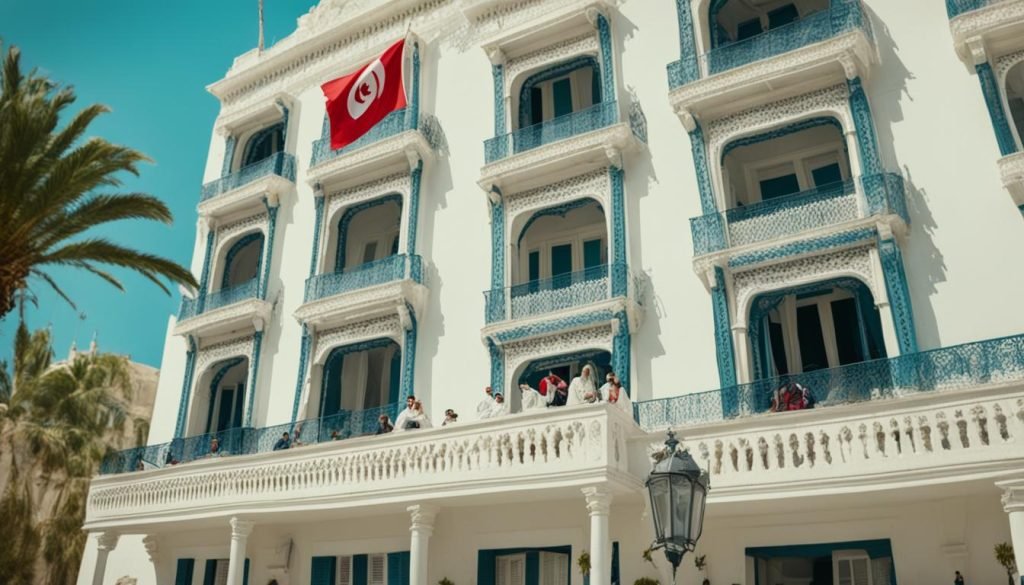
Rise and Decline of French Use
After Tunisia got its freedom in 1956, the use of French changed a bit. Though less used, French remains important. It’s still used in schools, government, and by thinkers. The story of French in Tunisia is about its past and its ongoing impact today.
Let’s look at how French and Arabic are used differently in some areas:
| Sector | French | Arabic |
|---|---|---|
| Education | Widely used in higher education and scientific fields. | Primary language in public schools and general communication. |
| Administration | Prevalent in official documents and proceedings. | Increasing use in governmental communication. |
| Business | Common in corporate and multinational companies. | Dominant in local and small-scale enterprises. |
English Language in Tunisia
More people in Tunisia are choosing to learn English, especially for school. Although French is still common, English is catching up. It helps with talking to the world and doing business internationally.
“The importance of English in today’s world cannot be understated, and Tunisia is no exception.”
Prevalence and Popularity
Some ask, Is English spoken in Tunisia? Yes, more and more people are speaking it. It’s not everywhere yet, but it’s growing. Young people and workers see how important it is globally. Many are learning English to get better jobs and connect worldwide.
Educational Influence
English is also getting big in Tunisian schools. Lots of schools now teach English to keep up with demand. The world loves English, and Tunisia is joining in. The Ministry of Education wants students to be good at English. It’s great for their future in the world’s economy.
- English gaining popularity in schools and universities.
- Enhanced curriculum integrating more English language courses.
- Increased availability of English language learning resources.
So, English in Tunisia shows the country wants to join in the world’s talks and business. It’s ready for change.
Role of French in Tunisian Society
The French language is very important in Tunisia. It’s a big part of schools and work life.
Continued Use in Education and Business
Many secondary schools and universities teach in French. It shows the long history between Tunisia and France. Also, companies doing business with French-speaking countries use French a lot.
Social Significance of Speaking French
Knowing French is seen as a sign of being smart and well-educated. It makes people think highly of you. Speaking French well can open many doors in social and work situations.=index 0>
Language Use in Tunisian Education
The Tunisian educational system values teaching many languages. It teaches both Arabic and French. This shows the country’s rich history and culture.
Primary and Secondary Education
From the start, Tunisia focuses on teaching many languages. Kids start with Literary Arabic. Later, they learn French too.
When they reach secondary school, they study subjects in both languages. This makes them very good at speaking two languages. It helps with their future studies and jobs.
Integration of Multiple Languages
But Tunisia doesn’t stop with just Arabic and French. Now, English is getting more important. It’s being added to schools and universities. This helps Tunisian students connect with the whole world.
To sum up, learning many languages is key in Tunisia. Students leave school able to speak two or three languages. They are ready for the global stage.
Multilingualism in Tunisia
Tunisia is rich in culture and history, shown through its languages. The nation moves smoothly between Arabic dialects, French, and English. This shows the deep linguistic diversity in Tunisia.
Tunisia sits where many cultures have crossed paths. This has made the country good at using many languages. A society has grown where using many languages is normal. It’s vital for talking every day and for work.
French became important during the time of the French rule. It’s still big in education and running the country. English is getting more popular, following world trends. It is changing how people in Tunisia use languages today.
| Language | Primary Use | Influences |
|---|---|---|
| Literary Arabic | Official Language | Historical and religious texts |
| Tunisian Arabic | Everyday Communication | Berber, Punic, French, Italian, Turkish |
| French | Education and Administration | Colonial influence, International commerce |
| English | Emerging Language | Globalisation, Education |
Knowing many languages helps Tunisia in culture and work. The linguistic diversity in Tunisia shows how well the country uses many languages. This reflects Tunisia’s rich past and its current ways.
Communication in Major Tunisian Cities
Big cities in Tunisia, like the capital Tunis, Sousse, and Monastir, are full of life and languages. They mix local ways of talking with foreign ones, showing how many languages people use in Tunisia. These places show off the country’s rich mix of languages in daily life.
Language Dynamics in Tunis
In Tunis, many languages live together in peace. Urban multilingualism shows itself here. Formal situations use Literary Arabic, and people chat in Tunisian Arabic every day. French is big in business, schools, and newspapers. English is growing fast, thanks to the world getting closer and new school programs. Tunis loves all its languages deeply.
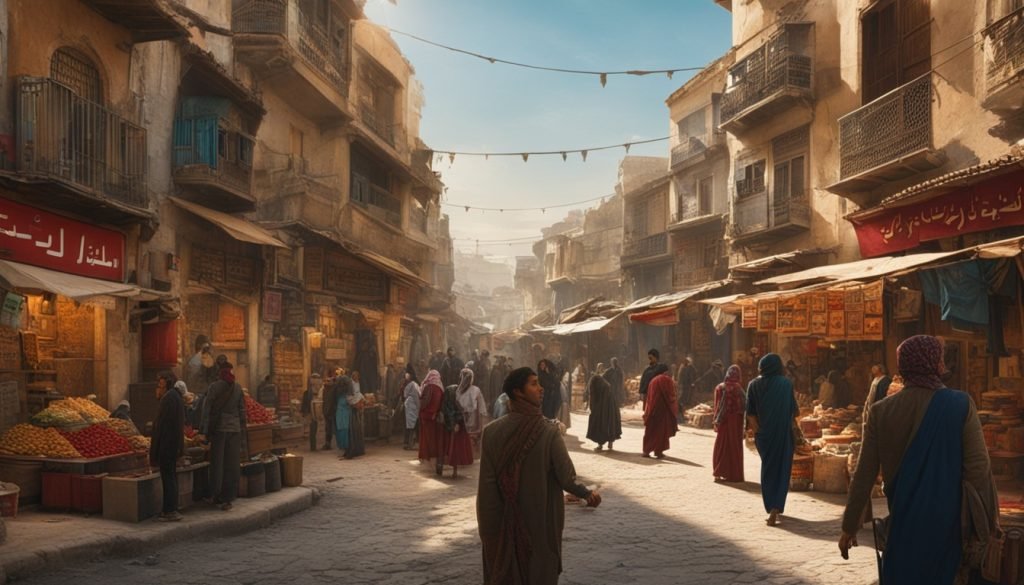
Language Case in Sousse and Monastir
Sousse and Monastir show language mixing just like Tunis. These beach cities are famous for their history and visitors. French is handy for tourists and Tunisian Arabic for family talks. Schools teach in French and English, showing major Tunisian cities language use. This makes many languages used often in the cities.
Languages in Tunisian Media
The media in Tunisia is full of life. It shows the country’s love for two languages. French and Arabic are very important. They reach all sorts of people.
French and Arabic in Print and Broadcast
Both French and Arabic are key in Tunisia’s media. This mix is part of the nation’s rich language story. Newspapers, radio, and TV use both languages. They connect with everyone.
“La Presse” and “Assabah” are two big newspapers. They use both languages very well. They show the beauty of Tunisia’s mixed culture.
Emerging Trends in Language Use
Media trends are changing quickly. Digital platforms are now more common. They use French, Arabic, and even English. This change is especially popular with the young.
These media trends in multilingualism help reach more people. The broadcasting languages in Tunisia are growing. It’s all because of the world getting more connected.
| Language | Primary Use | Media Examples |
|---|---|---|
| French | Print, Broadcast | La Presse, Radio Tunisienne |
| Arabic | Print, Broadcast | Assabah, Alchourouk |
| English | Digital | Web portals, Social media |
Language and Tourism in Tunisia
Talking with locals improves a visit to Tunisia. It lets visitors really understand the culture and history. Learning to chat helps you get more from your trip.
Common Languages Spoken by Tour Guides
Many tour guides in Tunisia can speak different languages. They often know Arabic, French, and English. This means more visitors can enjoy their tours.
Language Barriers for Tourists
Still, not everyone can always understand each other. It’s important to get past language problems for a good trip. Tour guides try hard to help everyone, showing Tunisia’s rich story.
Is English Spoken In Tunisia?
English is more popular in Tunisia now, thanks to the world getting closer. It’s very important for talking to others all over the globe.
General English Proficiency
Even though Tunisians mainly speak Arabic and French, English use is growing. Schools are teaching English earlier. This helps students speak it better later on.
This is because schools add English to lessons. Also, there are places to learn English outside of school. So, younger people are speaking English more now.
Impact of Tourism and Globalisation
Tourists and global business make English more important in Tunisia. People visiting Tunisia want to talk easily, without language problems. And, to do business with other countries, speaking English helps a lot. So, Tunisians are learning English to keep up with the world.
Choosing the Right Language for Communication
To communicate well in Tunisia, it’s important to know the local languages. The language you pick can really change how well your message is understood. Many people use Tunisian Arabic for day-to-day talk and casual chats. But, French is often chosen in work and school settings, helping people from different places understand each other better because many educated Tunisians know it well.
In business or tourist spots, you might hear English being used. This shows Tunisia is open to the world and adapts easily to using English for talking with outsiders.
- Context Matters: Think about the situation—formal, informal, work-related, or relaxed—to choose the best language.
- Know Your Audience: By knowing how well your listeners can understand different languages, you can talk better.
- Flexibility is Key: Switching between Arabic, French, and English lets Tunisians communicate smoothly, depending on what’s needed.
Using different languages when talking to varied groups shows respect and helps everyone understand better. It’s a key part of successful talking across cultures.
Here’s a guide to choosing languages based on who you’re talking to:
| Context | Preferred Language |
|---|---|
| Informal Daily Interactions | Tunisian Arabic |
| Professional & Academic Settings | French |
| Tourist Areas & International Business | English |
Conclusion
Tunisia’s language scene is fascinating. It’s made up of history and today’s cultural changes. The main language is Literary Arabic. Tunisian Arabic is also widely spoken. This shows how history and now mix together in Tunisia. Understanding this helps us value Tunisia’s culture more.
Berber and French add to Tunisia’s language mix. English is getting popular, especially in schools and for tourists. This mix shows Tunisia’s rich language variety. It’s key for anyone who wants to connect with Tunisia.
To sum up, Tunisia’s language diversity is special. It combines old traditions with new global touches. Knowing about these languages helps us understand Tunisia better. It makes our connection with its people and history deeper and more real.

